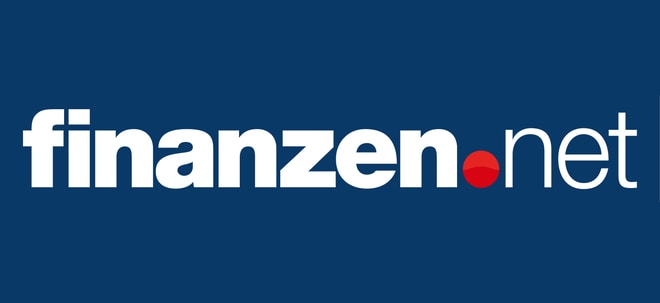Cvent Reports 91% of Travel Managers Oversee Corporate Trips and Events

Cvent, a prominent provider of technology for meetings, events, and hospitality, has recently unveiled the findings of its 2025 Global Cvent Travel Managers Report. This comprehensive report offers critical insights into the evolving landscape of business travel, shedding light on how sourcing practices, budgetary allocations, and overall priorities are shifting worldwide. The study, conducted in partnership with Censuswide during March and April 2025, gathered responses from over 1,600 corporate travel decision-makers across various regions, including North America, Europe (specifically the UK, Germany, and France), Asia-Pacific, and the Middle East and Africa, with specific emphasis on insights from the US and Japan as well.
A significant trend highlighted in the report is the notable shift towards centralized sourcing for corporate travel and events. The findings reveal that a substantial majority, 91% of travel managers, are now actively involved in sourcing hotels and venues for their organization's meetings and events. This marks a considerable increase from 2017, when only 64% of meetings and travel programs were either consolidated or on the cusp of consolidation. This trend underscores that consolidated management has become the new standard within the industry, driven primarily by the pursuit of enhanced operational efficiency, cited by 49% of respondents globally, and an even higher 53% in Europe. Furthermore, the report indicates that more than four in five, 83% of surveyed decision-makers, have successfully reduced costs by managing both their business travel and meeting programs under a single umbrella. However, this consolidation, while beneficial, also introduces increased complexity and demands on travel managers, who must now expertly navigate a broader range of responsibilities.
Despite the operational advantages, the industry faces persistent challenges, notably rising travel costs. A significant 71% of travel managers anticipate higher expenses in 2025, which will inevitably strain existing budgets. In response to these financial pressures, organizations are reassessing their travel expenditures. The report identifies incentive trips and internal meetings as the most likely candidates for reductions, with 31% of travel managers indicating plans to cut or eliminate these categories. This reflects a strategic effort to control spending in areas deemed less critical for immediate business outcomes. Nonetheless, the continued value of in-person engagement remains undisputed. Acquiring new customers stands out as the primary reason for face-to-face meetings, cited by 43% of global respondents, a sentiment strongly echoed by their European counterparts and those in key markets like the US, UK, Germany, France, and Japan. This highlights the ongoing necessity of physical interactions for crucial business development and relationship building, even amidst heightened cost scrutiny.
Technology plays an increasingly vital, albeit not flawless, role in modern travel management. The report indicates a strong reliance on robust technology platforms, with only 13% of travel managers planning to reduce their technology spending this year. Online content and sourcing technology are viewed as indispensable tools for making informed venue decisions; for instance, 48% of surveyed travel managers state that detailed specifications, images, and videos of guest rooms significantly influence their decision to submit a Request for Proposal (RFP). Travel managers commonly rely on travel websites (52%), hotel websites (47%), and search engines (42%) to evaluate hotel suitability. Despite these resources, a considerable 33% still report difficulties in precisely determining whether a hotel truly meets their program's specific needs. In Europe, sourcing platforms hold even greater importance, with 43% of managers finding them particularly useful for easily assessing and analyzing bids, surpassing the global average of 38%. This reliance on technology, while enabling greater efficiency and program visibility, also presents its own set of challenges, including navigating potentially clunky or outdated platforms and ensuring precise suitability matching.
Furthermore, sustainability has emerged as a significant influencing factor in business travel decisions. A notable 30% of travel managers worldwide and 32% in Europe anticipate that sustainability practices and goals will directly impact their business travel priorities through at least 2026. Within Europe, commitments to waste reduction (32%) and the use of locally sourced food (29%) are among the most valued sustainability practices. However, the practical implementation of sustainability initiatives often presents challenges. Travel managers frequently encounter difficulties in identifying venues and suppliers that fully align with these eco-friendly criteria, and effectively tracking and measuring their environmental impact remains complex. This underscores the need for greater transparency and wider adoption of sustainable practices across the hospitality sector to facilitate greener travel programs.
In conclusion, Cvent's 2025 Global Travel Managers Report clearly demonstrates the evolution of the travel manager's role into a more strategic and streamlined function, now encompassing both business travel and event sourcing. Despite ongoing budget concerns driven by rising travel costs, organizations are increasingly recognizing the substantial operational and financial benefits derived from this consolidation. This trend is particularly pronounced in Europe, where travel professionals are prioritizing operational efficiency and leveraging digital tools to overcome sourcing challenges, facilitate smarter decision-making, and deliver enhanced value. The findings collectively underscore the imperative for travel managers to collaborate closely with partners who can effectively support this evolution, particularly hotels and venues that are proactive in embracing the complex sourcing needs of today's travel managers, including robust sustainability practices, enhanced transparency, and strong supplier partnerships.










